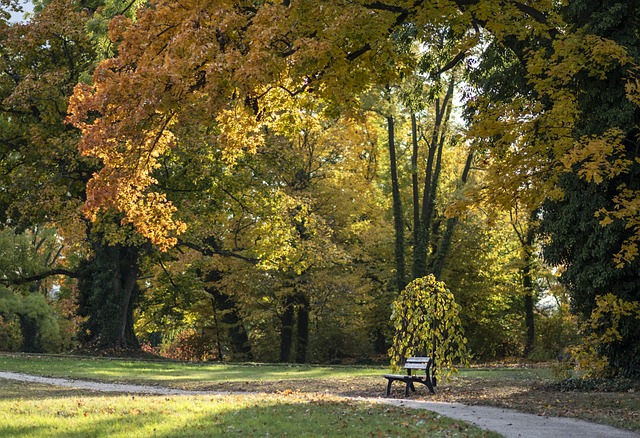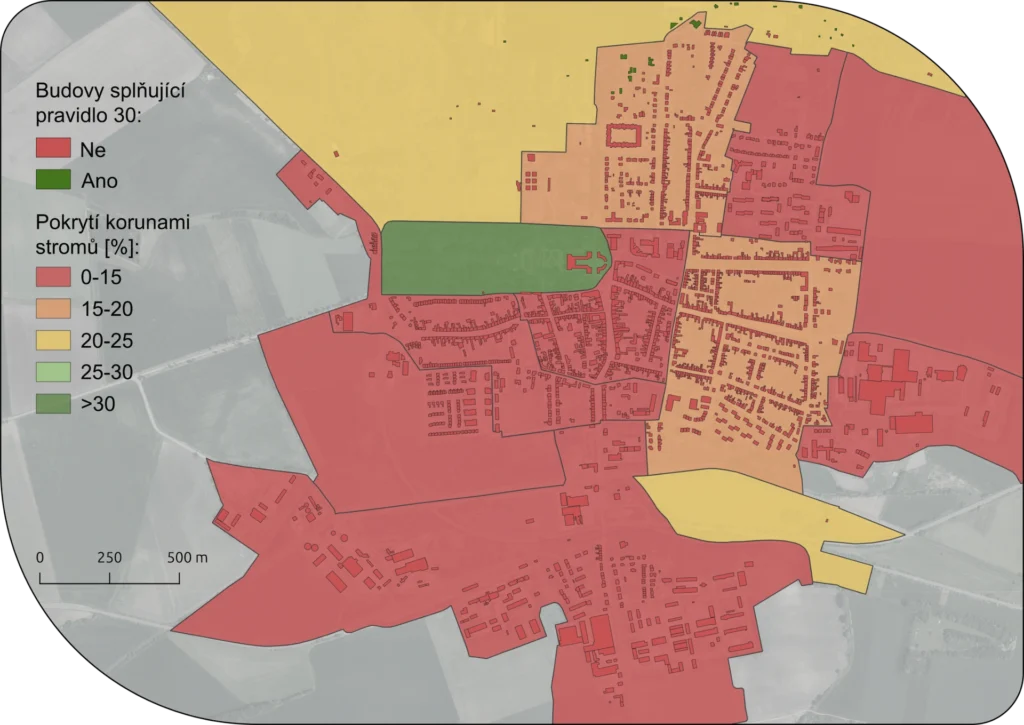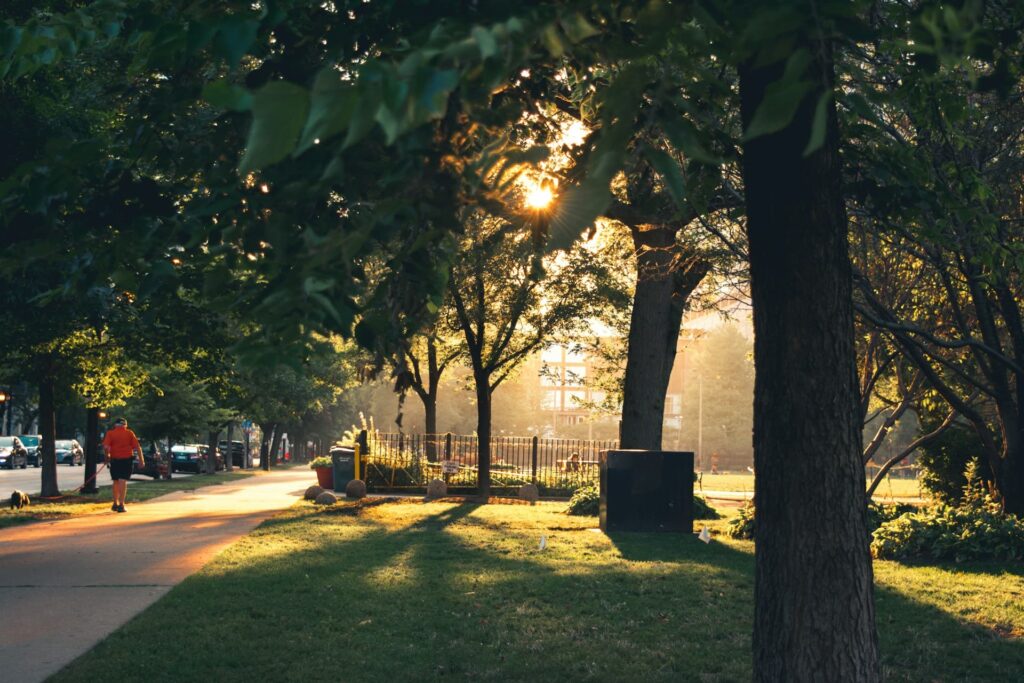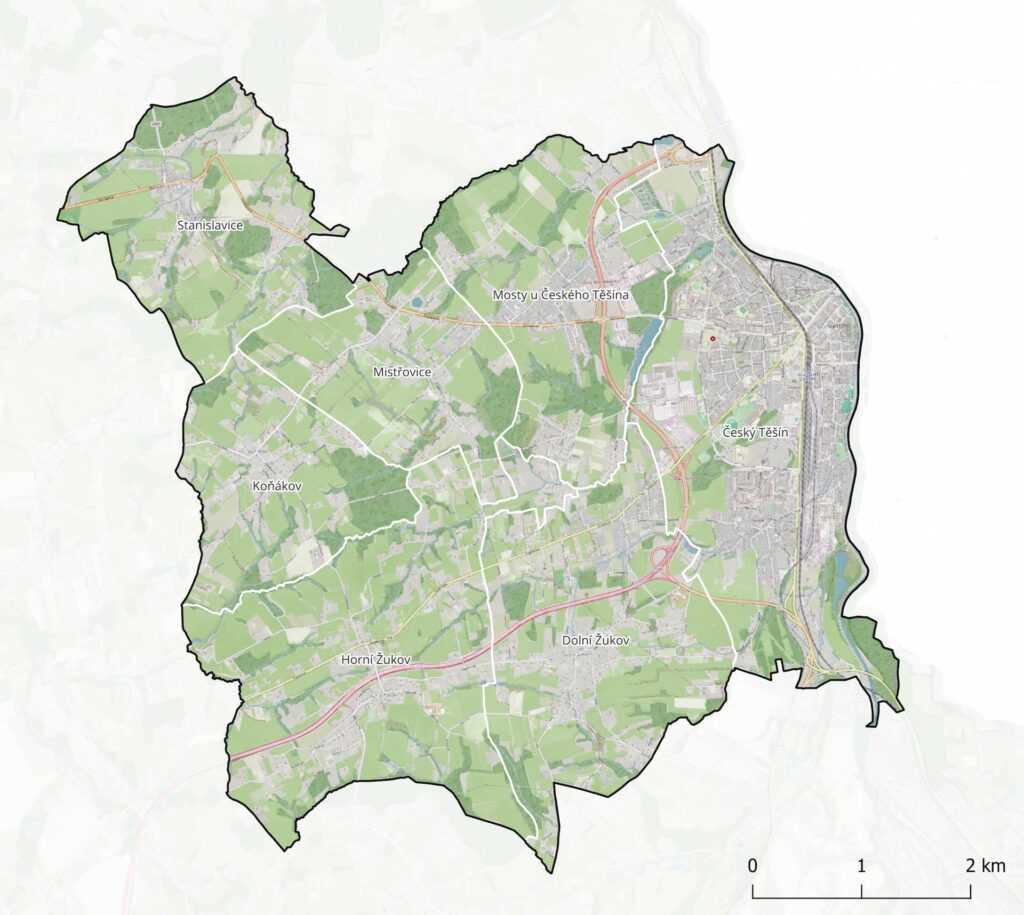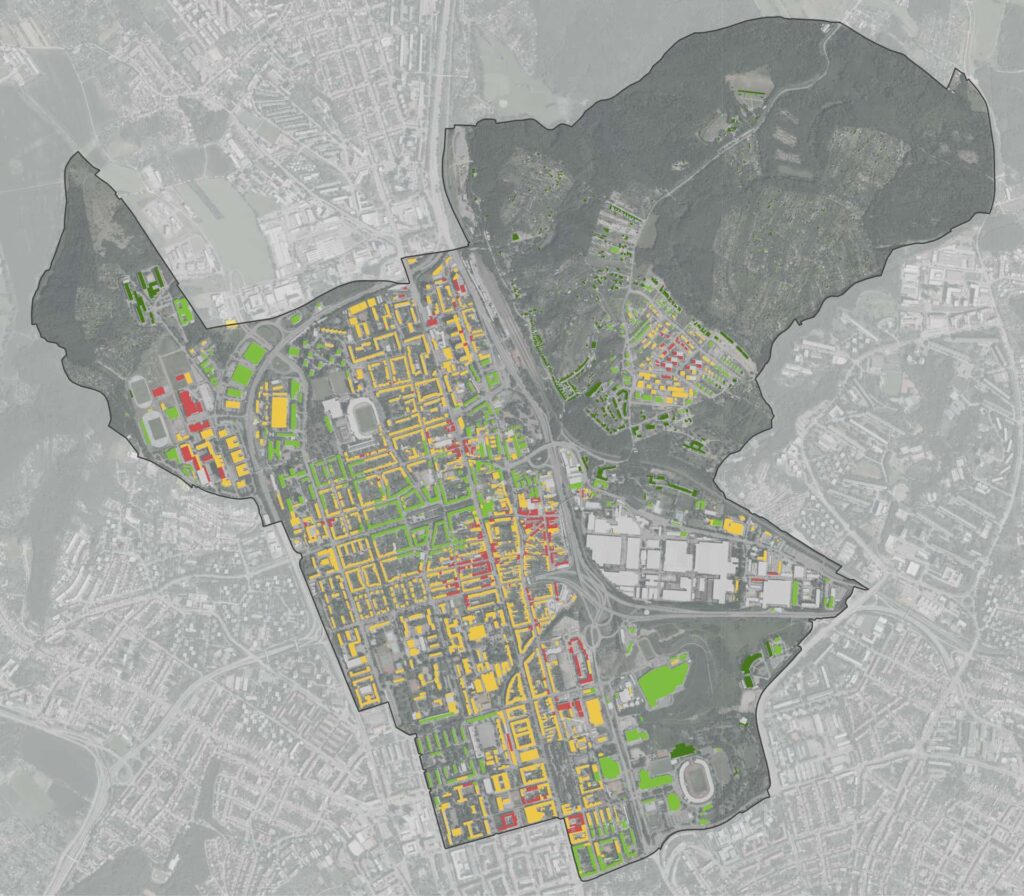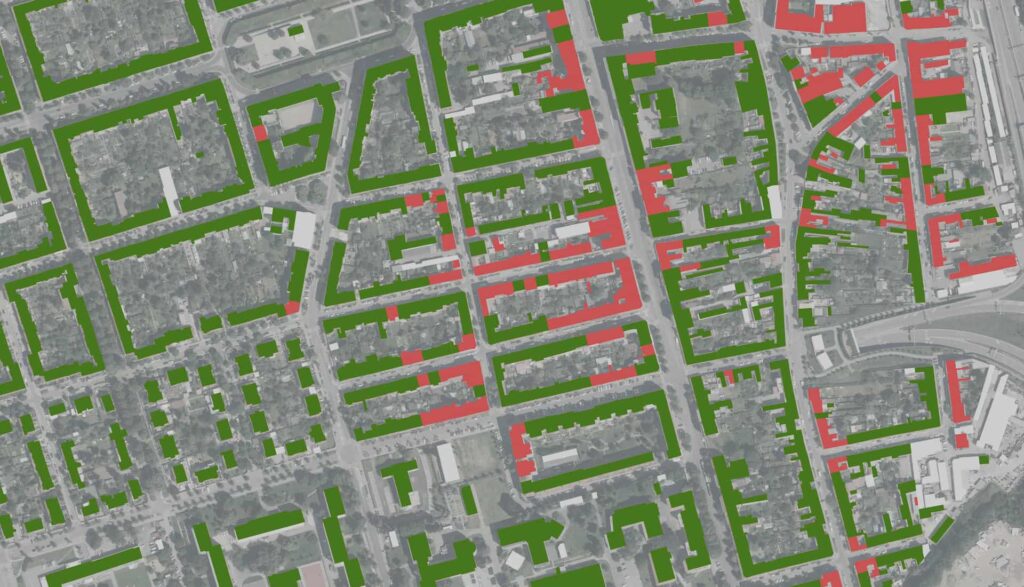The 3-30-300 rule is an innovative approach to urban planning that aims to improve the quality of life in cities by increasing the availability of green spaces. The concept, developed by the urban planner Cecil Konijnendijk, is based on three basic principles: every city dweller should have a view of at least three trees from the window of their home, every urban neighbourhood should have a minimum of 30% tree coverage and every citizen should have access to public green spaces within 300 metres of their home.
Three trees in sight
The first principle of this rule emphasises that every person should be able to see at least three trees from the window of their home. Research shows that visual contact with nature, such as trees, has a positive impact on mental health and well-being. The presence of trees around the home brings a sense of calm and connection to nature, which can reduce stress and improve overall quality of life. During the COVID-19 pandemic, this aspect became even more pronounced as many people spent more time at home, and views of greenery became crucial.
30% tree cover in every neighbourhood
The second principle ensures every neighbourhood has at least 30% tree cover. This measure brings several environmental and health benefits. Trees help to reduce ambient temperature, improve air quality and reduce noise. In addition, they create a more pleasant and healthier environment for residents, encouraging physical activity and social interaction. Studies have shown that people living in areas with sufficient green cover have better mental health and are less likely to visit psychologists or psychiatrists.
300 metres to the nearest green space
The third part of the rule deals with the distance to the nearest public green space. Every resident should be able to get to a park or other good quality green space within 300 metres of their home. This distance is essential for encouraging regular physical activity and maintaining good physical and mental health. Not only does regular access to green spaces promote physical and psychological well-being, but it also reduces the risk of depression.
Implementation and benefits
Implementing the 3-30-300 rule in urban planning brings many benefits, from improving public health to increasing biodiversity and adapting to climate change. Cities that apply the rule can achieve significant environmental improvements with a direct impact on the life quality of their residents. Although the 3-30-300 rule application can be challenging, its simplicity and clarity make it attractive to urban planners and designers worldwide.
Therefore, the 3-30-300 rule is an effective tool for creating sustainable and healthy urban environments. If implemented correctly, it can help improve not only the aesthetics and ecology of cities but, importantly, the health and well-being of their inhabitants.





